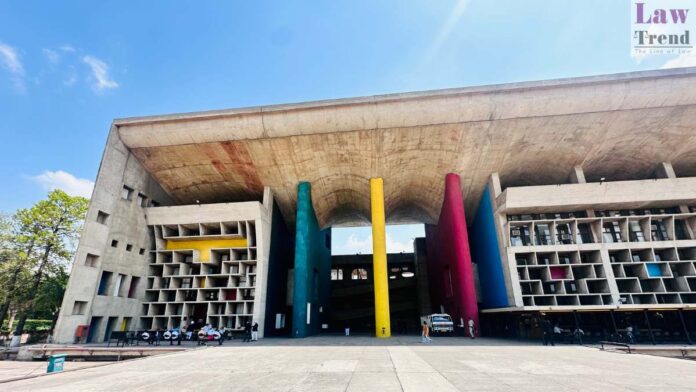In a significant observation aimed at curbing the growing misuse of terminology by private security agencies, the Punjab and Haryana High Court has held that the use of the term ‘bouncer’ is intended to invoke fear, anxiety, and terror in the public mind, which is “impermissible” in a civilised and democratic society.
The court was hearing a petition for anticipatory bail filed by an individual operating a private security agency. A single-judge bench of Justice Anoop Chitkara took strong exception to the use of the term “bouncer” in the agency’s name and operations, stating that such nomenclature and conduct deviate sharply from the objectives of regulated private security services.
“The primary reason for engaging the services of a security agency or guards is to ensure a safe and respectful space,” the court said. “However, when these employers or employees assume extra-constitutional authority, using threats and brute force, it becomes a grave concern for society.”
Disturbing Trend of Aggression
Justice Chitkara referred to a “disturbing trend” where workers described as “bouncers” often display aggressive and bullying behavior, thereby stripping themselves of humanistic qualities and turning into figures of intimidation rather than safety.
“They don an armour of hostility and aggression, subjecting citizens to indignity and humiliation at will, unafraid of consequences,” the bench noted, adding that such behavior reflects a dangerous belief of being “above the law.”
The court said that this trend of branding security personnel as “bouncers” effectively reduces the respected role of a trained guard to that of an enforcer driven by confrontation, not civil responsibility.
Passive State Endorsement
In a strong rebuke to government inaction, the court criticized the state authorities for their “passive endorsement” of the term bouncer and called out the lack of sensitivity toward what the term now represents in public perception.
“It is beyond comprehension how the identity of a particular section of workers can so restrictively be defined, named or termed as ‘bouncers’,” the judge said. “Such employees are not above the law, nor are they enforcers of it.”
The court emphasized that neither the Private Security Agencies (Regulation) Act, 2005 nor the Punjab Private Security Agency Rules, 2007 mention or legitimize the term “bouncer.” Rather, the legislation clearly defines roles for “private security guards” trained in emergency response, surveillance, and respectful conflict resolution.
Citing Dictionary Definitions
Quoting from Merriam-Webster, Oxford, and Cambridge dictionaries, the court noted that the term “bouncer” is traditionally associated with forcibly ejecting people from bars or nightclubs, reinforcing the term’s connotation with violence and physical intimidation.
“Using the term ‘bouncer’ for trained security staff degrades their role and identity, distancing them from professionalism and bringing in a perception of lawlessness,” the court said.
Call to the Executive
The bench concluded by stating that the judiciary’s role is to sensitise the executive. It called upon the state to ensure that the term “bouncer” is not used by any security or recovery agent or agency for its personnel, encouraging instead terms that uphold respect, dignity, and responsibility.
“The usage of this term has no place in a society governed by rule of law,” the court observed, urging the state to act before this misuse becomes further entrenched in practice.
Background of the Case
The observations came while adjudicating a bail plea, but the court’s focus extended beyond the petitioner’s personal circumstances to address the systemic misuse of labels and the need for humane enforcement practices in private security.




